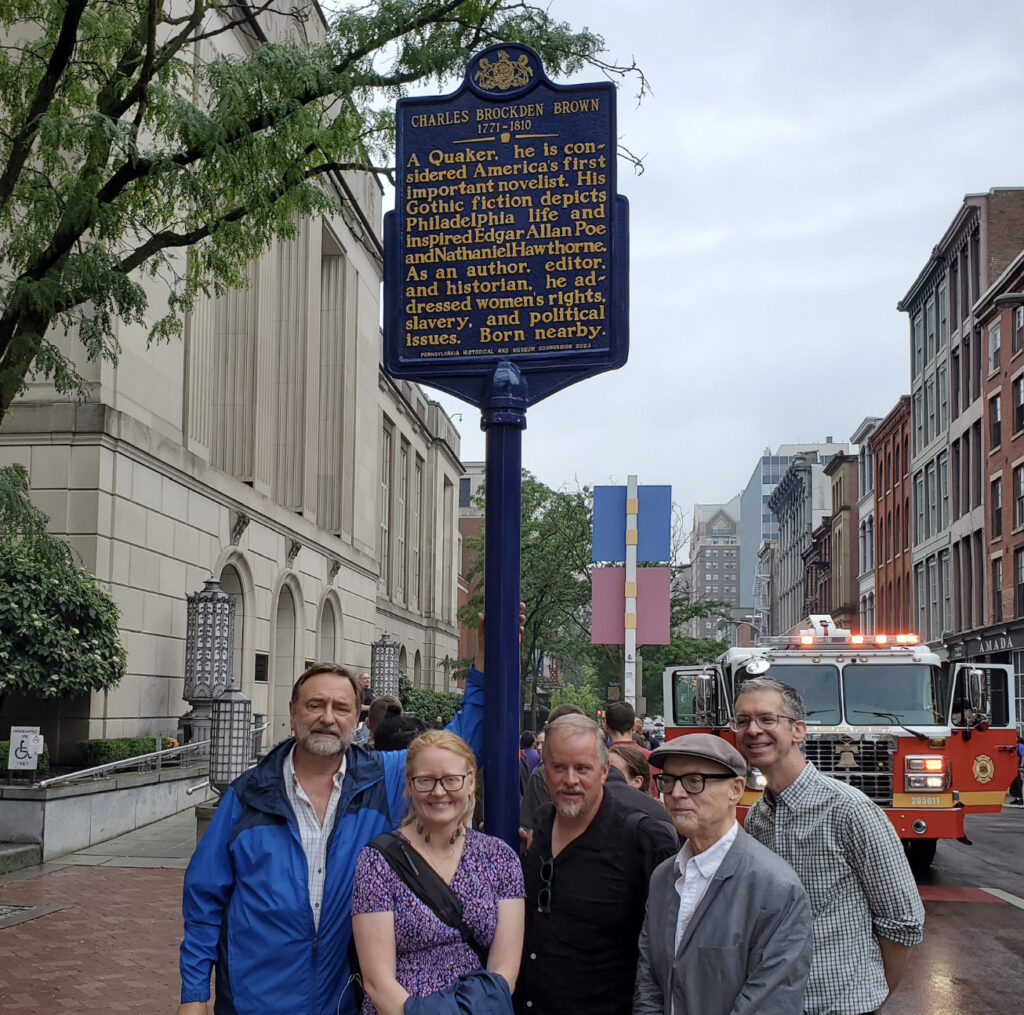Charles Brockden Brown (1771-1810) has earned a general reputation as the early republic’s most ambitious and accomplished literary figure. He wrote prolifically in many genres, founded and edited three major magazines, published widely read political pamphlets, and intervened in many debates about the culture and politics of the new nation.
The Charles Brockden Brown Society was founded in 2000 as an international scholarly organization to stimulate interest in the life and writings of Charles Brockden Brown (1770-1810) as well as other writers from this period and to provide a forum for the exchange of ideas and information among Brown scholars and other interested persons.
Program – 2025 Conference, University of Massachusetts Boston
Plural Spheres and Marginal Spaces: Imagining Environment in Early America
October 9–12, 2025
A conference sponsored by the Charles Brockden Brown Society
From atmospheres and biospheres to public and intimate spheres, the ways we imagine environments, interconnectedness, separations, and materiality impact the globe and its worlds. Plural spheres gestures at the numerous and ever-changing spatial metaphors that scholars use to conceptualize their fields of study, fields that are constantly in flux and perpetual motion, never quite solidifying to remain vibrant. Marginal spaces emerge from the pressures and consequences created by the shifting dimensions of plural spheres. By foregrounding the conjunctions and complex intersections between plural spheres and marginal spaces, this conference opens up conversations about the dynamic histories, materials, and locations that one encounters while sifting through the wreckage of the eighteenth and early nineteenth centuries.
Join the Society or Renew your Membership!
_____________________________________

- Video remarks from Jennifer Robinson, Director of Preservation Services, Preservation Alliance for Greater Philadelphia [Text]
- Video remarks from Mark Kamrath [Text]
- Video remarks from Philip Barnard [Text]